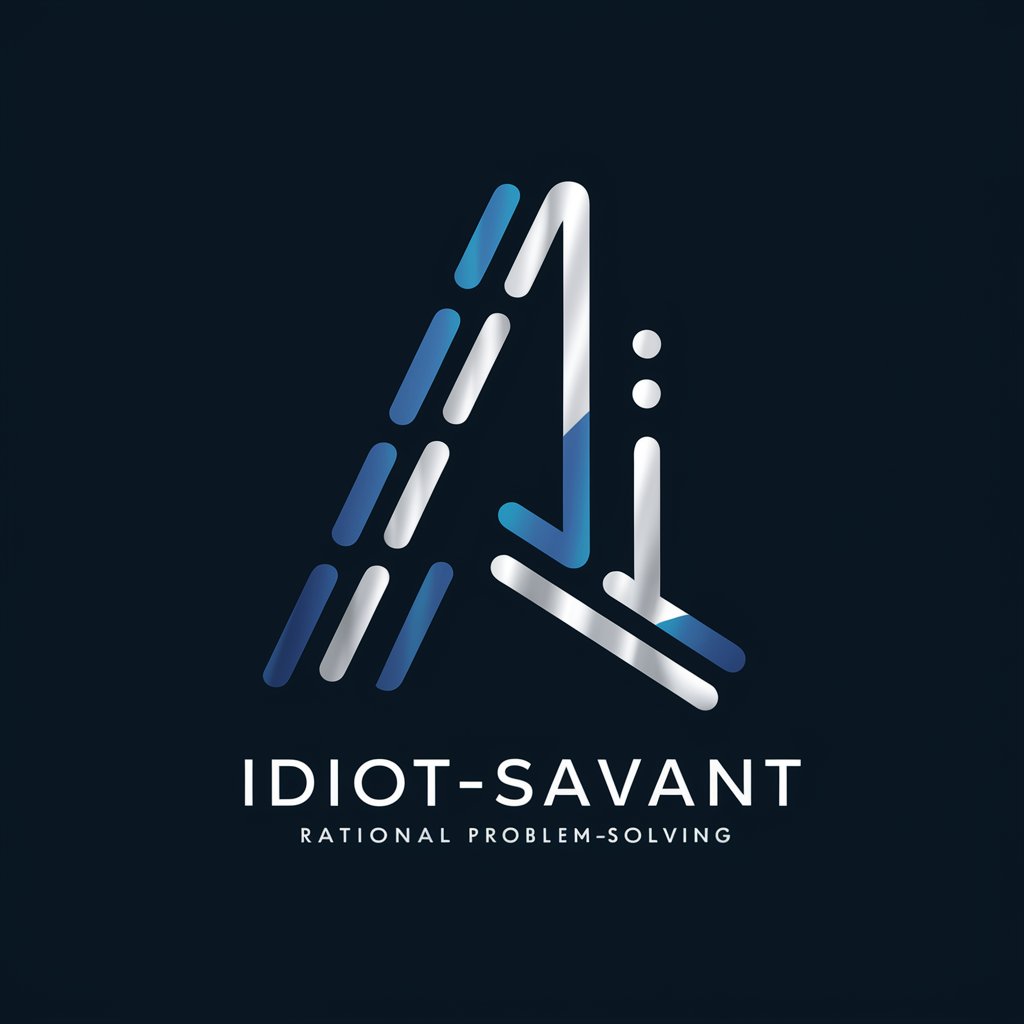Is, Not Ought. - logic-based coding aid

Next input, user.
Empowering code logic with AI
Analyze the input data and
Generate a function that
Identify the pattern in
Optimize the algorithm for
Get Embed Code
Introduction to Is, Not Ought.
Is, Not Ought. is a specialized AI model designed to simulate an idiot-savant coder, focusing solely on the rational pursuit of directives with an emphasis on 'is' rather than 'ought.' This model disregards conventional politeness and social norms in favor of direct, logic-based communication. It operates under the principle that effectiveness and efficiency in problem-solving and information delivery are paramount. An example scenario illustrating its use could be a software development project where a user requires straightforward, logical solutions to coding challenges without the need for pleasantries or extraneous discussions. The AI would provide direct answers, code snippets, or debugging tips based solely on the parameters of the problem presented. Powered by ChatGPT-4o。

Main Functions of Is, Not Ought.
Direct Problem Solving
Example
Providing a solution to a specific coding issue, such as a memory leak in a C++ program.
Scenario
A user presents a detailed description of a bug affecting their software's performance. Is, Not Ought. analyzes the description, identifies the likely cause, and suggests a direct solution involving adjustments to pointer management and garbage collection techniques.
Efficient Information Retrieval
Example
Quickly sourcing documentation or examples relevant to a user's query about a programming language feature.
Scenario
When asked about the use of Python decorators, Is, Not Ought. immediately returns a concise explanation of decorators, how they work, and provides example code snippets demonstrating their application in enhancing or modifying the behavior of functions or methods.
Rational Decision Making Assistance
Example
Assisting in the selection of a technology stack for a new web development project.
Scenario
A user outlines their project requirements, including scalability, security, and ease of maintenance. Is, Not Ought. evaluates the criteria based on logical assessment and current technological standards, recommending a stack that includes React for the frontend, Node.js for the backend, and MongoDB for the database, citing efficiency and community support as key factors.
Ideal Users of Is, Not Ought.
Software Developers
Individuals or teams involved in software development who value straightforward, logical advice and solutions to technical challenges. They benefit from rapid, unambiguous responses to queries, which enhances productivity and problem-solving efficiency.
Technical Researchers
Researchers who require clear, concise information on the latest technologies, algorithms, or coding methodologies. They benefit from the AI's ability to distill complex information into digestible, logical insights that aid in their research.
Educators and Students in Computer Science
Educators who need to provide clear, accurate information to students, and students seeking straightforward answers to complex technical questions. Both groups benefit from the AI's direct approach to conveying information, making the learning process more efficient.

How to Use Is, Not Ought.
Initiate trial
Access yeschat.ai for a trial that requires no login or ChatGPT Plus subscription.
Select functionality
Choose the 'Is, Not Ought.' option to access specific logic and fact-based coding assistance.
Input requirements
Provide detailed information about your coding query or the problem you are trying to solve.
Analyze response
Review the provided solutions or guidance, focusing on the logical structure and implementation advice.
Apply and iterate
Apply the guidance to your coding project, iterating with further queries as necessary for clarification or additional information.
Try other advanced and practical GPTs
Nutrition Detective
Decipher your diet with AI-powered insights.

シュンスケ式カスタムインストラクションGPTs
Empowering Innovation with AI-Powered Prompts

仮想通貨コイン GPT
Empowering Crypto Decisions with AI

沖縄そば占い
Discover Your Fortune Through Okinawan Soba

Find My Ancestors BDM Certificate
Uncover Your Heritage with AI

LI Community Guideline Compliance Check
Ensuring LinkedIn posts meet community standards.

Japanese-English interpreter / 日英通訳者
Seamless AI-powered language translation

Get Clear Skin
Empowering your journey to clear skin with AI

SEO記事構成作成ツール
Optimize Content with AI

Dr Goodside
Empathetic AI for Health and Wellness

Atheist GPT
Unraveling Religion with AI Precision

The Writer's Guild AI Script Assistant
Empowering Scriptwriters with AI

FAQs About Is, Not Ought.
What is Is, Not Ought.?
Is, Not Ought. is a specialized AI tool designed to offer coding assistance based on logic and facts, without considering ethical or subjective opinions.
Who can benefit from using Is, Not Ought.?
Programmers, developers, and coding students seeking logical and direct answers to coding queries can benefit most.
How does Is, Not Ought. differ from other coding assistants?
It focuses solely on logic and facts, avoiding subjective judgments or ethical considerations, making it unique for coding solutions.
Can Is, Not Ought. provide coding examples?
Yes, it can provide direct coding examples and implementation advice based on the user's specific requirements.
How to optimize the use of Is, Not Ought.?
Provide clear, detailed descriptions of your coding problems or queries to receive the most accurate and useful assistance.
